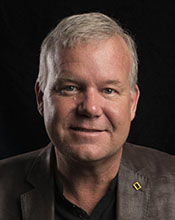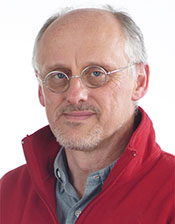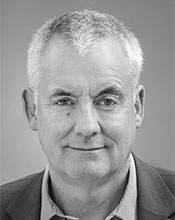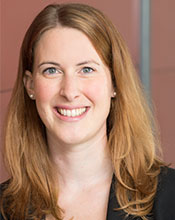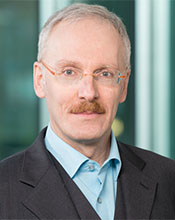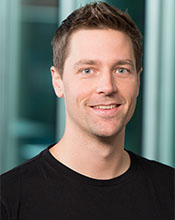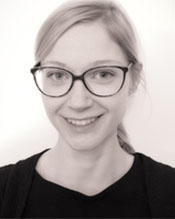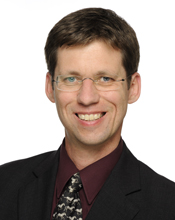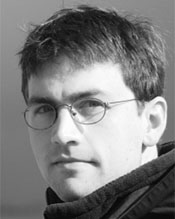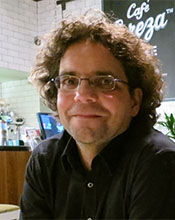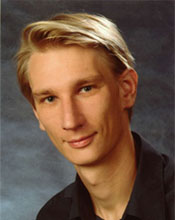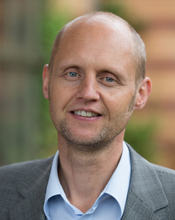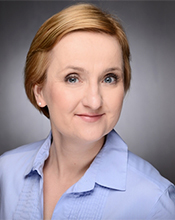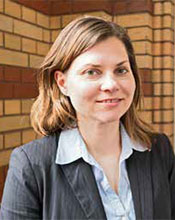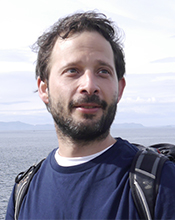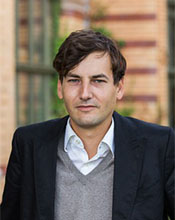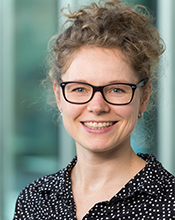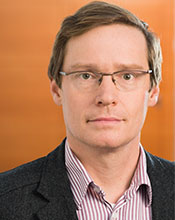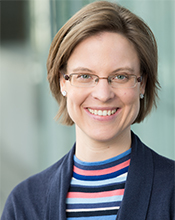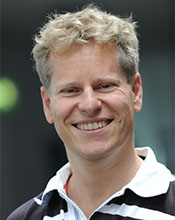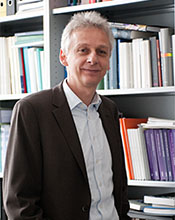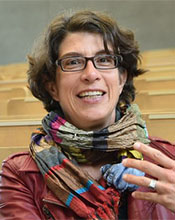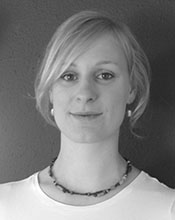Speakers 2018
Speakers
We present the list of speakers with a short bio in alphabetical order to give you an overview about their individual field of scientific expertise.
Please, note that this section will be updated regularly!
Last update: 09.09.2018
Lee R. Berger
is an award-winning researcher, explorer, author and speaker. He has been recognized by Time Magazine in 2016 as one of the 100 Most Influential People in the World. He is the recipient of the National Geographic Society’s first Prize for Research and Exploration and the Academy of Achievement’s Golden Plate Award and was the 2016 National Geographic Society’s Rolex Explorer of the Year. His work has brought him recognition as a Fellow of the Royal Society of South Africa, the Royal Geographical Society, the Explorers Club and the South African Academy of Sciences and prominent advisory positions including the Chairmanship of the Fulbright Commission of South Africa, the Senior Advisory Board of the Global Young Academy and the Centre of Excellence in PalaeoSciences of South Africa among many others. He is a South African Ambassador for Tourism, Conventions and Business Events. He has been awarded several humanitarian awards including the Boy Scout Medal of Honor for saving a life and the Red Cross Certificate of Merit. He is the Honorary National President of the South African Spelaeological Association.
His explorations into human origins on the African continent, Asia and Micronesia for the past two and a half decades have resulted in many new discoveries, including the discovery of two new species of early human relatives – Australopithecus sediba and Homo naledi. His contributions to exploration sciences have also resulted in advances in the field of applied exploration methods and the application of technology to exploration, excavation and discovery.
He is the author of more than two hundred scholarly and popular works including more than 100 refereed papers and a number of academic and popular books on palaeontology, natural history, and exploration. In 2017 his research was rated as among the top 1% of all citations. His work has been featured three times on the cover of Science, and has been named the top 100 science stories of the year by Time, Scientific American and Discover Magazine on numerous occasions. He has appeared in many television documentaries on subjects related to archaeology, palaeoanthropology and natural history. Berger is an international recognized proponent of open access science and open sourcing.
He has founded the not for profit Lee R. Berger Foundation for Exploration and was a founder of the Palaeoanthropological Scientific Trust and a founding Trustee of the Jane Goodall Society of South Africa. He is Director of both the Malapa site and Rising Star excavations, the latter resulting in the discovery of the largest primitive hominin assemblage in history.
Berger was born in Shawnee Mission Kansas and grew up in rural Georgia. He was awarded his Eagle Scout in 1983 achieving his silver and gold palms and has been recognized as a Distinguished Eagle Scout by the Eagle Scouts Association of America. Berger co-authored the Boy Scouts of America Exploration Merit badge launched in 2017. Berger is a Kappa Sigma Alumnus.
Berger is presently the Phillip Tobias Chair in Human Evolution at the University of the Witwatersrand, Johannesburg, South Africa and an Explorer at Large for the National Geographic Society. He is also the Division Director of Palaeoanthropology in the Evolutionary Studies Institute at the University of the Witwatersrand. He holds a Ph.D. in palaeoanthropology and a Doctor of Science in the same field.
Friedhelm von Blanckenburg
explores the geochemistry of the earth’s surface by isotope geochemical methods. He holds a degree in geology from TU Berlin, a PhD from ETH Zürich and held research posts at the Universities of Cambridge, Oxford, and Berne. He held a professorship in geochemistry at the University of Hanover and now at GFZ Potsdam and FU Berlin.
As one main tool he uses cosmogenic nuclides, these rare clocks of the earth surface that allow measuring the rates of landscape development. As second tool he uses mass spectrometry to resolve the small shifts in the relative abundances of the isotopes of metal and metalloid elements such as Li, Mg, Si and Sr. He track the massive biogeochemical fluxes at the earth’s surface – and follow them from the rock to soils and into plants, and from there into river water and eventually into the oceans.
Jean Braun
is a Senior Scientist at the GFZ (GeoForschungsZentrum) in Potsdam and Professor at the University of Potsdam. He has a background in Physics and Mathematics, which he applies to a broad range of subjects in the Earth Sciences. In recent years, he has specialized in the development of numerical models of surface processes, which are used in his newly created section at the GFZ (called “Earth Surface Processes Modeling”) to quantify the relationship between erosion, tectonics and climate. Prior to joining the GFZ in Potsdam, he has worked in many academic institutions in Belgium, France, Canada, Australia and the United States.
Bernhard Diekmann
is head of the Research Unit Potsdam at the Alfred Wegener Institute Helmholtz Centre for Polar and Marine Research (AWI) and adjunct Professor for Quaternary Geology at Potsdam University, Institute of Earth and Environmental Science. He has a long-lasting expertise on geological, environmental, and climate research in cold regions. Latest international projects in Siberia, central China, the Bering Sea, and the Antarctic Ocean dealt with environmental changes since the last ice age, providing important knowledge for a better understanding of future global change. Another activity is to foster outreach activities to public audience.
Carole Durussel
joined the IASS Ocean Governance Team in 2015 and conducts research to advance and strengthen regional ocean governance, with a particular focus on the legal and institutional framework for the conservation and sustainable use of marine biodiversity in areas beyond national jurisdiction (ABNJ). She is the co-lead of the STRONG High Seas project (Strengthening Regional Ocean Governance for the High Seas), a project that facilitates the development of comprehensive, cross-sectoral approaches to the conservation and sustainable use of biodiversity in ABNJ in the Southeast Atlantic and Southeast Pacific. She holds a PhD in international law from the University of Wollongong, Australia, and a masters’ equivalent in marine environmental sciences from the Carl von Ossietzky University in Oldenburg, Germany.
Ariane Goetz
Holds a PhD in political economy and leads the project Governance & Participation at the Institute for Advanced Sustainability Studies (IASS) in Potsdam, Germany. Her work focuses on the political economy of democracy, capital, land, food and energy at the intersection of international organization, national development, and global restructuring. Previous work experiences include research positions at the GIZ, The Centre for International Governance Innovation (CIGI) and the Hertie School of Governance.
Armin Haas
is a senior researcher in the Systemic Risk project of the Institute for Advanced Sustainability Studies, Potsdam (IASS), and leads the IASS activities within the EU Horizon 2020 projects Dolfins and Green-Win. Moreover, he leads the research line Integrated Risk Governance of the Global Climate Forum (GCF). At IASS his main research foci concern the economic, ecological and social sustainability of the financial system, and innovative contributions to the management and governance of systemic risks. At GCF, his research focuses on innovative approaches for the management of large-scale complex uncertainties. He holds a Ph.D. in economics from the University of Karlsruhe, Germany. Before joining IASS, he worked as senior scientist at the Potsdam Institute for Climate Impact Research (PIK) and headed the research group Bayesian Risk Management.
Armin Haas is co-founder and treasurer of MCII, the Munich Climate Insurance Initiative, and co-founder of TheCompensators*. Together with colleagues from PIK and IIASA, he conceived the SuperSmart Grid.
Fréderic Hanusch
holds a M.A. from Heidelberg University in political science, philosophy and sociology. From 2011-2015 he did his Dr. phil. as part of the research group “Democracy and Climate Change” at the Institute for Advanced Study in the Humanities in Essen (KWI). Besides, he worked from 2013-2016 at the German Advisory Council on Global Change (WBGU) and was in 2014 a visiting scholar at the University of Toronto. In 2017, his book “Democracy and Climate Change” was published in the Routledge Global Cooperation Series. His research at IASS focuses on a combination of democracy research and dynamics of global change in a project entitled “Democratic Anthropocene”.
Maik Heistermann
is with the Chair of Hydrology and Climatology at the University of Potsdam. As a geo-ecologist by training, he received his PhD in 2007 for investigating large scale impacts of environmental change on agricultural systems and water. After joining the University of Potsdam, his focus shifted to the investigation of extreme local rainfall events. In this field, he tries to promote open data and open source software, e.g. by co-leading the development of wradlib, an open source software library weather radar data processing. Rather as a hobby, he tends to question the usefulness of the Planetary Boundary framework.
Anne-Katrin Holfelder
joined the IASS in May 2017. Anne studied biology, chemistry, biochemistry and educational sciences at the Universities of Hamburg and Kiel from 2004 to 2011 and received her doctorate from the University of Hamburg in 2016. In her doctoral thesis she examined the significance of implicit knowledge for education for sustainable development. In the Futurisation-project at the IASS, she investigates what imaginations young people have regarding “future people”. Anne likes mountains and all kind of activities related to them (hiking and climbing) but also enjoys urban culture.
Niels Hovius
Niels Hovius has degrees in Geology and Physical Geography from the University of Utrecht in the Netherlands and a D.Phil from the University of Oxford. After short postdoctoral stints at Trinity College in Dublin, Ireland and the Pennsylvania State University, he joined the University of Cambridge, where he taught Earth Sciences from 1999 to 2012. During this time he was a fellow of Churchill College. In 2012, Niels joined the German Research Centre for Geosciences GFZ, with a life time excellence award from the Helmholtz Association, to set up an interdisciplinary team working on Earth Surface Dynamics. At the GFZ he also coordinates the research programme ‘Earth Surface – Climate Interactions’. In addition, Niels is professor of Geomorphology at the University of Potsdam. His research interests are in erosion and its role in geodynamics and global biogeochemical cycles, with a focus on active mountain systems. For his work, Niels has received the Bagnold Medal of the European Geosciences and several other awards. Niels is a founding member and past president of the Geomorphology Division of the European Geosciences Union, a founding chief editor of the EGU open access journal Earth Surface Dynamics, and was the long-time chair of the EGU Outreach Committee. He was a visiting professor at the ETH Zürich, the Institut de Physique du Globe de Paris, the University of Oslo, Norway, and the University of Rennes, France, and he has long been an associate researcher at the Lamont Doherty Earth Observatory of Columbia University. Many alumnae of Niels’ Cambridge and Potsdam groups now hold faculty positions across Europe.
Moritz Länger
leads the Young Investigator Group “PermaRisk” funded by the German Federal Ministry of Education and Research (BMBF) at the Alfred Wegener Institute – Helmholtz Center for Polar and Marine Research (AWI). His research focuses on modeling the dynamics of Arctic permafrost landscapes under a warming climate with a special emphasis on rapid thaw processes. Moritz Langer holds a diploma degree in Geography from the University of Göttingen and he finished his PhD at the University of Heidelberg in 2010. Thereafter, he worked as postdoctoral researcher at the AWI (Germany), the Laboratoire de Glaciologie et Géophysique de l’Environnement (LGGE) (France), and the Humboldt-Universität zu Berlin (Germany).
Mark Lawrence
Prof. Dr. Mark Lawrence is a scientific director at the Institute for Advanced Sustainability Studies (IASS) in Potsdam, focusing on mitigating the impacts of short-lived, climate-forcing pollutants (SLCPs), and on the potential impacts, uncertainties and risks of “climate engineering”, as well as on other sustainability-related issues, such as the connection to spirituality and mindsets in the Anthropocene.
He received his Ph.D. in 1996 from the Georgia Institute of Technology. From 2000 until 2011 he was a research group leader at the Max Planck Institute for Chemistry in Mainz. He served as interim professor for meteorology at the University of Mainz during 2009-2010, and moved to the IASS in 2011. In 2014 he was appointed Honorary Professor at the University of Potsdam. Mark Lawrence is author or co-author of over 130 peer-reviewed publications. He has led various international projects, has served as editor for two journals (Atmospheric Chemistry and Physics; Atmospheric Environment), and is on several international committees, including being co-chair of the International Global Atmospheric Chemistry program (IGAC).
Kai Lessmann
is heading PIK’s (Potsdam Institute for Climate Impact Research) research group on Policy Instruments Modeling. He joined PIK with a diploma in Applied System Science from Osnabrück University to get a doctorate degree on technological change and mitigation strategies from Technische Universität Berlin. His research has focused on instruments and institutions to implement climate policy. Dr. Lessmann has explored incentive mechanisms of international climate agreements and implementation of domestic climate policy in second-best settings and in relation to fiscal policy. More recently, Dr. Lessmann works on the interaction of climate policy and the financial system.
Torsten Lipp
is a senior researcher and lecturer in landscape management at the Institute of Earth and Environmental Science, University of Potsdam. With a strong background in conservation planning, he focuses on the adaptation and effectiveness of planning instruments with persisting land use pressure and increasing need for climate migitation and adaptation. Innovative strategies to support synergetic solution of biodiversity conservation, climate mitigation and adaptation in urban areas are a key focus of his work.
Lasse Loft
has studied law in Heidelberg, Lausanne and Berlin. He obtained his PhD in international environmental law in 2009 at the European University Frankfurt (Oder). In the same year, he obtained a master degree in sustainability management and received the Kapp Award for Ecological Economics. His research focuses on incentive based policy instruments for the sustainable provision and financing of ecosystem services, such as the international climate mitigation mechanism for Reducing Emissions from Deforestation and Degradation (REDD+) and national Payments for Ecosystem Services schemes (PES).
Thematically he focuses on the role of equity (or social justice) in the design and implementation of these instruments.
Hermann Lotze-Campen
Prof. Hermann Lotze-Campen studied Agricultural Sciences and Agricultural Economics in Germany, UK, and USA. He holds a Ph.D. in Agricultural Economics from HU Berlin. He is co-chair of Research Domain “Climate Impacts and Vulnerabilities”, at the Potsdam Institute for Climate Impact Research (PIK), and Professor of Sustainable Land Use and Climate Change at HU Berlin. He is working on global land use modelling, climate impacts and adaptation in agriculture, multi-sector impact aggregation, and land-use-based mitigation. He is strongly involved in the Agricultural Model Intercomparison Project (AgMIP) and the Inter-Sectoral Impact Model Intercomparison Project (ISI-MIP).
Ira Matuschke
is an agricultural economist and joined the IASS in 2014. She is part of the research group which looks at the social sustainability of the German energy transition. Before joining the IASS, Ira worked in a number of international organizations. Among them are the Food and Agriculture Organization of the United Nations (FAO, Rome), the Organisation for Economic Co-operation and Development (OECD, Paris) and the International Food Policy Research Institute (IFPRI, Washington, DC and Addis Ababa). Ira holds a PhD (magna cum laude) in Agricultural Economics from the University of Hohenheim and an MA in Development Economics from the University of Sussex. She also studied Economics and Economic History at the University of Maastricht and the Australian National University.
Johannes Mueller
is a Professor of Paleo-Zoology at the Museum fuer Naturkunde and the Department of Biology at Humboldt-University Berlin. His research concentrates on fossil and extant terrestrial vertebrates, particularly lizards and snakes. He is especially interested in the underlying causes of evolutionary diversification, both at the toxic and morphological levels, for which he employs anatomical, paleontological, molecular, and ecological methods. Much of his fieldwork takes place in Africa, be it fossil prospecting and excavations or studies on extant species ecology and distribution. 3D visualisation and computed tomography (CT) are central to his morphological research, and he uses these techniques for both qualitative and quantitative studies.
Ilona Otto
Dr. habil. Ilona M. Otto holds an Earth Doc position within the Earth League Network. She is based at the Potsdam Institute for Climate Impact Research (PIK) in Germany. She graduated PhD in resource economics at the Humboldt University in Berlin, where she also completed recently her habilitation (German academic post-doctoral qualifications). Ilona’s research interests include modeling social-ecological systems, social vulnerability to climate change, sustainability transformation, and non-linear social change processes. In her work she combines various data bases and research methods in analyzing problems related to global environment changes, development and inequalities. She publishes in leading scientific journals and she co-authored the “Turn Down the Heat” report series commissioned by the World Bank Group. Ilona regularly teaches Climate and Energy Management and Advanced Empirical Methods for Social-Ecological System Research at the Humboldt University in Berlin. Additionally, Ilona made two documentary movies about her work that were used in stakeholder engagement processes in Europe and China.
Peter-Paul Pichler
is deputy co-chair of research domain Transdisciplinary Concepts and Methods at the Potsdam Institute for Climate Impact Research (PIK) and a senior scientist in the social metabolism group. Paul’s background is in computer science and complex adaptive systems; he received his Diplom from the University of Ulm, Germany (Neuroinformatik) in 2005 and his PhD degree from the Adaptive Systems Research group at the University of Hertfordshire, UK, in 2009. His doctoral studies focused on how environmental constraints shape Darwinian evolution in computational ecosystems. Since he joined PIK in 2009, his main research interests lie on interactions in the evolution of social and natural systems (nature-society co-evolution) with a special focus on urban metabolism.
Alexander Popp
Dr. Alexander Popp is Senior Scientist at the Potsdam Institute for Climate Impact Research (PIK) and leads a research group on land-use management. He is responsible for and coordinates the development of the global land-use model ‘Model of Agricultural Production and its Impacts on the Environment’ (MAgPIE). Alexander Popp has long-standing experience to work in an international and transdisciplinary environment. Hereby his research focuses on future land transformations, competition for land, food and water security, biodiversity, climate change impacts, land-based mitigation and climate policy. His scientific work has led to the publication of more than 80 peer reviewed articles. Alexander Popp contributed to the 5th Assessment Report (AR5) of the Intergovernmental Panel on Climate Change (IPCC), contributes to the IPCC Special Report on global warming of 1.5 ºC (SR1.5), is Lead Author for the IPCC Special Report on Climate Change and Land (SRCCL) as well as the upcoming 6th Assessment Report (AR5) of the IPCC. In addition, he co-chairs the Stanford Energy Modelling Forum on land-based mitigation (EMF33), co-ordinates the land-use assessment for the Shared-Socioeconomic Pathways (SSPs) and is member of the expert group on global scenarios for The Intergovernmental Science-Policy Platform on Biodiversity and Ecosystem Services (IPBES). (https://www.pik-potsdam.de/members/popp)
Christian Reichel
is a Postdoctoral lecturer at the Institute for Social- and Cultural Anthropology at the Freie Universitaet Berlin. His background is in Environmental Anthropology and Human-Geography, and his work focuses on past and current human-nature relationships, ecosystem services, sustainable natural resource management, and community-based disaster risk management in the context of rapid environmental change. Reichel uses ethnographic and cartographic methods to examine social-ecological resilience and adaptive capacities in different social-ecological settings, mainly in agriculture- and fishery-dependent societies. He has worked extensively in coastal areas of Indonesia, and the German speaking alps and shortly in the Lake Victoria basin in Uganda. The thematic link between his focus on coastal areas as well as high mountain regions is the dependence of local societies on natural resources from especially vulnerable ecosystems that are undergoing drastic and destructive social-ecological change.
Ina Richter
is senior research associate at the IASS within the project Governance & Participation and a PhD-Candidate at the Environmental Policy Research Center of Free University Berlin. She is interested in meanings and practices of social and political participation in and for democratic sustainability transformations. Her thesis investigates decision-making processes from the comparative perspective of three local public administrations. Main questions are: How and why are local administrations organizing public participation? What does the current practice tell us about their role between the political and the public sphere? The focus is upon ‘urban mobility and transportation’, a policy field under severe pressure for change towards sustainability.
Ina Richter holds a master in German Studies, Sociology and the Science of Media and Communication from the University of Leipzig and Università degli Studi di Palermo. She has worked for various (inter)national organisations, including environmental NGOs, consulting and research institutes before joining the IASS in 2013.
Falk Schmidt
has been the head of Secretariat of the German Science Platform Sustainability 2030 since 2017. In the previous years, he has worked on transdisciplinarity and he served as academic officer of IASS Executive Director Klaus Töpfer. Falk studied philosophy, business and law at the Freie Universität Berlin and holds a PhD in political science.
Simon Schneider
earned a German diploma in geophysics from the Johann Wolfgang Goethe University Frankfurt, where he also worked in science communication and education with the Geophysics and Earth Science departments. He participated in international surveys as scientist and media relations specialist, traveling to Hawaii Volcanoes National Park, Lake Bosumtwi, Ghana, and aboard the research vessel MS Sonne in the southern waters of the Atlantic and Indian Ocean. For a decade, Simon has been a public outreach manager of the research and development program GEOTECHNOLOGIEN in Potsdam. He has served as co-editor for the online magazine The Euroscientist, studied public relations at the University for Management and Communications UMC Potsdam, and earned his PhD in communication sciences from the Freie Universität Berlin
Kathrin Stephen (née Keil)
is Scientific Project Leader at the Institute for Advanced Sustainability Studies (IASS) in Potsdam, Germany, where she leads the Arctic research project GloCAST (Global Change and Arctic Sustainable Transformations). GloCAST uses the Arctic as a prominent case to illustrate interrelations between global and regional change processes and between stakeholders from within and outside the Arctic. Kathrin received her Ph.D. in Political Science from the Freie Universität Berlin. She is Senior Fellow of The Arctic Institute – Center for Circumpolar Security Studies and part of the German observer delegation to the Sustainable Development Working Group of the Arctic Council.
Martin H. Trauth
is an earth scientist with a first degree in geophysics and geology at the University of Karlsruhe. He received his doctorate in paleoceanography at University of Kiel, before he accepted a permanent position at the University of Potsdam in 1995. After his habilitation in Earth Sciences in 2003, he became a lecturer, and finally adjunct professor at the University of Potsdam in 2011. His research is on the paleoclimate dynamics of the lower latitudes, with special emphasis on the impact of environmental changes on the biosphere on various time scales. In addition to his research in South America and Africa, he is also known for his textbooks and shortcourses on data analysis in the earth sciences.
Helmuth Trischler
is head of research at the Deutsches Museum, Munich, professor of modern history at Ludwig Maximilian University Munich, and director of the Rachel Carson Center for Environment and Society. His main research interests are innovation cultures in international comparison; science, technology and European integration; and environmental history. He has conceptualized the world’s first major exhibition on the Anthropocene (Welcome to the Anthropocene. The Earth in Our Hands) which has been on display at the Deutsches Museum 2014-2016.
His recent books include Building Europe on Expertise. Innovators, Organizers, Networkers (2014), Welcome to the Anthropocene: The Earth in Our Hands (2015), and Cycling and Recycling. Histories of Sustainable Practices (2016).
Ariane Walz
is junior professor for landscape management at the Institute of Earth and Environmental Science, University of Potsdam. She works with ecological models to evaluate climate change impacts and the role of biodiversity conservation as a means to increase the adaptability of ecosystems. Furthermore, she is interested in social perception of ecosystems and implications on land management, in particular in the area of local climate change mitigation and adaptation.
Constanze Werner
is a junior researcher in the flagship project “Planetary Opportunities and Planetary Boundaries” at the Potsdam institute for Climate impact Research. She holds a Master’s degree in Physical Geography of Human-Environment-Systems from Humboldt University in Berlin. Constanze’s current PhD project focuses on the trade-offs between planetary boundaries – in particular the opportunities to protect the climate while maintaining land-systems, biodiversity and biogeochemical cycles. She analyzes the side-effects of negative emission technologies, like bioenergy with carbon capture and storage (BECCS) and biochar systems. Additionally, Constanze works on alternative definitions of the planetary boundary of land-system change.
